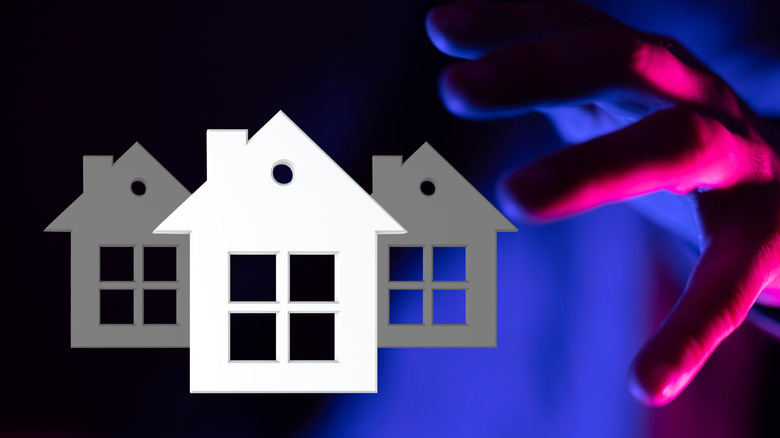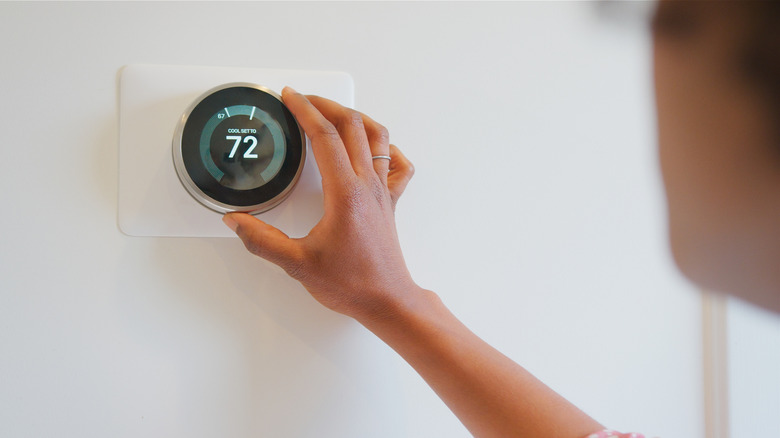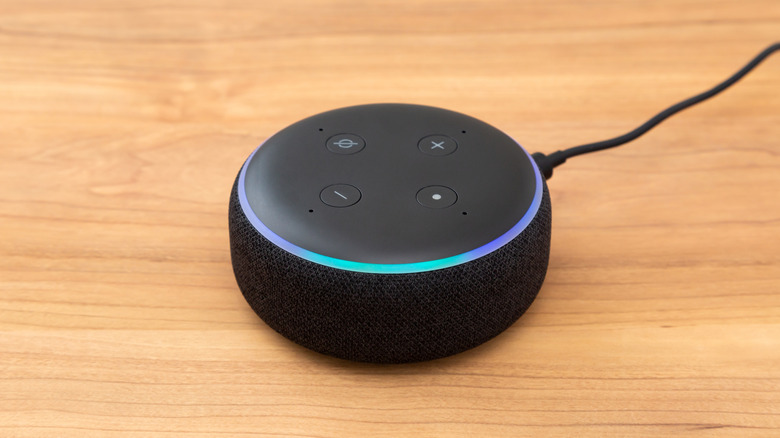4 Warning Signs Your Smart Home Has Been Hacked
When you tell your smart assistant to start your morning coffee or use your smartphone to adjust your smart thermostat to make sure your home's temperature is just right when you get home from work, someone hacking your smart home is probably the furthest thing from your mind. From TVs to doorbells, a lot of our everyday devices are connected to the internet, and many of us don't give it a second thought. But with great convenience comes great risk. According to a report from the cybersecurity company Bitdefender, connected devices on the average home network get hit with about 10 attacks per day.
Unfortunately, these attacks are increasing. In fact, SonicWall's 2025 Cyber Threat Report found that IoT attacks went up 124% in 2024, a sign that smart devices are drawing more attention from cybercriminals. Whether it's a smart TV or a smart plug, all it takes is one compromised device to open the door to your entire smart home setup. Because many smart devices ship with weak, and don't receive you might have a hard time noticing when something goes wrong. Hackers don't need to cause damage; they just need a weak point in your network. However, if you know what to look for, you can often catch the signs of a hack before it causes serious damage.
Your smart devices are doing things you didn't ask them to
One of the first clues that your smart home has been hacked is your devices doing things you Smart lights are among the easiest smart gadgets to set up, and if you notice them turning on and off unexpectedly, that could be a sign that they're receiving commands from an outside source. The same is true if you notice your or your smart locks locking and unlocking on their own. If the behavior continues or doesn't have an obvious explanation, don't ignore it. Think of it like a domino effect; once a hacker gets into one smart gadget, they may be able to reach others on your network, too. That could include anything from changing settings to spying through your camera or
The signs your smart home has been hacked won't always be obvious; you may notice subtle things like your camera shifting without you doing anything or a device randomly rebooting, or unfamiliar settings in your apps. While it's easy to brush off these strange behaviors as harmless glitches, a hacker could be working behind the scenes to probe your system to see if they can gain control of your network.
Unusual network traffic or unfamiliar devices connected
Another sign your smart home has been hacked is or connected to your router. Early warning signs could be a spike in data usage at odd hours or device names you don't recognize listed in your network's dashboard. These things are easy to overlook, but they could be a signal that a bad actor has gained access to your network or has to quietly exploit your smart devices.
Your best defense against these types of attacks on your smart home is to keep tabs on your network's activity. You can do this by regularly interface to review the connected devices list. If you see unknown entries or devices that don't match your household equipment, that could be a sign of an intruder. If one of your smart devices suddenly starts to than usual, you might be part of a botnet sending data or participating in attacks. You should also keep an eye out for devices communicating frequently with or domains because they could be contacting malicious servers for commands or to exfiltrate information. Keeping an eye on these things is an easy way to make your smart home more secure and spot potential threats before they become a bigger problem.
Strange sounds, voices, or alerts from smart speakers or cameras
If you own an Amazon Echo and Alexa starts speaking out loud for no reason, or if Google Home responds when you didn't say the wake word, or your security camera captures unexplained noises or starts moving on its own, it could mean that someone has gained remote access to the device and is actively manipulating it. Our list of top-rated smart speakers for 2025 can help you find the right voice assistant for your home, but even with the best devices, you'll need to stay alert to unusual behavior that could signal a hack.
Security research group SRLabs has warned that malicious third-party voice "skills" can be used to trick smart speakers into eavesdropping or even launching phishing attempts by imitating system messages and requesting personal info from users. Even have been hacked, allowing strangers to watch or talk through the camera as if they were in the room. If your has been hacked, its LED lights may blink, settings may change unexpectedly, or it might move on its own, letting you know that something isn't right. While it's true that sometimes these occurrences are nothing more than a software bug, it might be a hacker testing their control or attempting to spy through your smart home devices. That's why if you notice your smart speaker or camera behaving strangely, you should take it seriously and investigate right away.
Your settings change on their own, or you're locked out of your account
Just like on a smartphone or banking app, if you receive a notification about a password change on one of your smart home devices that you didn't initiate, that should set off alarm bells. New device pairings or finding yourself locked out of your smart home account are also cause for concern. These things aren't random; hackers often or credentials to lock you out so they can take control of your devices.
Once a hacker locks you out of your account, they may be able to fly under the radar, cameras, and thermostats without your knowledge. They can do things like add their own devices or alter your two-factor settings to make sure you can't boot them out of your system. Even if it starts with a stolen password or stolen session token, the result can be the same: someone having unauthorized control of your smart home. You may be able to stop a hacker before they get very far by keeping an eye out for push alerts for password or email changes that you didn't request, notifications of new device pairings you didn't authorize, and failed login attempts using your own account credentials. If any of these things happen, immediately, enable multi-factor authentication, remove unknown devices, and contact your device manufacturer's support team.




